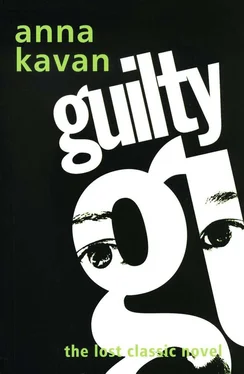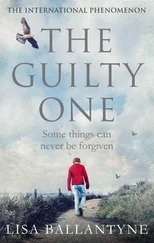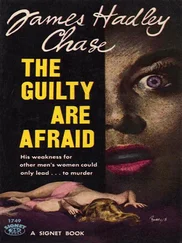The sun had set now. All unreality and distortion ended, I once more stood on the wall in my proper self, looking down at my old friend and his armed escort.
Of course it was Mr Spector, I thought, jumping down and hurrying through the currant bushes with outstretched hand. What a perfect fool I’d been to imagine anyone else could conceivably be the first to reach us with news from outside. My old belief in the man’s infallibility had returned, and I felt drawn most warmly towards him. My childish fears now seemed utterly ludicrous. I was so happy just to see him again that I found myself saying, ‘How splendid of you to come.’
He didn’t seem surprised at this unusual display of boyish enthusiasm on my part, accepting it, as he accepted my hand, with a faint enigmatic smile. Yet I wasn’t disappointed: this was his most attractive, most benevolent self; there was no need for him to say anything; it was as if he exuded goodwill, convincing me, without a word or a sign, of his unchangeable friendliness.
Though I’d drifted away from him during recent years, as I had from my mother, allowing the world of school to absorb my emotions as well as my interest, I’d always remained aware of his ultimate importance to me, which was, in changing circumstances, the one unalterable certainty. I knew now that the years between didn’t matter, our intimacy being established upon a plane unaffected by temporary ups and downs. Impulsively I started questioning him about the course of events, but he silenced me by a gesture, told one of his attendants to take my place on the wall and returned to the car, signing to me to follow. As I obeyed him, a faint sense of repetition touched me with the eerie proximity of long-forgotten events, as though the past was gathering around us in the dusk. Then, banishing all such imponderables, Mr Spector asked where we could talk without danger of interruption, and I directed him to drive on a little way to the enclosed rickyard, to which nobody ever came at this hour.
His wish for privacy rather surprised me. But I felt no apprehension, looking at him with implicit trust, waiting for him to speak. It was years since I’d felt this particular sort of warm, confiding affection that made me eager to do whatever he asked, without question, to throw in my lot with him, without reservation of any kind. I’d almost forgotten that he could be so endearing at times, so that his goodwill seemed more valuable than anything in the world.
Looking back from this distance of time, I’ve no doubt whatsoever that he knew exactly what I was feeling and quite likely had induced me to feel as I did, for he kept his eyes on me all the time, turning sideways to do it and leaning against the window, his arms lying across the wheel, his long legs stretched out across mine. It was getting darker each moment, but a lingering gleam of sunset was on his face, enabling me to distinguish the piercing brightness of his eyes and his fixed expression, which combined sadness with affection. To my surprise, his large, cool, powerful hand closed over my own, pressing it encouragingly for a second before he said, ‘I’ve brought you bad news, Mark, I’m afraid — the worst possible news.’
His voice was melancholy, grave and sincere. I couldn’t doubt that he meant precisely what he’d just said. But the strength of my personal feeling for him — or, if you like, of his influence over me — transcended everything else. I was neither alarmed nor especially curious about his news. The simple fact of sitting here beside him was far more important, enclosing me in happy serenity and security, safe from all my former agitations and fears.
I couldn’t bear to interrupt this peaceful happy intimate moment. It was one of those moments of conscious respite and relaxation, made more poignant by the knowledge of coming trials, that one longs instinctively to extend into infinity. However, I knew I must resist the temptation to abandon myself to it, and, returning with an unwilling effort to world affairs, asked naïvely, ‘Have we lost the war?’
‘That, too.’
In strange contrast to my own almost indifferent question, the two words, heavily spoken with a dying fall, sounded so ominous that I was startled at last. They pointed clearly to some other disaster, concerning me more directly; but what catastrophe could have occurred grievous enough to merit that gloomy tone or to be mentioned in the same breath as a nation’s fall?
‘My father …?’ Once my thoughts had turned in the direction of pacifism they began running away with me, imagining all sorts of disturbing eventualities. Perhaps he’d led hostile demonstrations against the authorities; perhaps he’d spoken in public against the war, trying to convert people to his own views; perhaps he’d engaged in subversive activities (whatever they were); perhaps he was to be put in gaol or even shot as a traitor …
‘He was caught on the first day, by the first bomb.’
This quiet statement arrested my sensational guesses and covered me with confusion and shame. I was thankful there wasn’t enough light to reveal the flush I could feel on my cheeks as guilt and remorse overwhelmed me. How could I have been thinking these shameful thoughts about my father, who had suffered an experience so horrific I couldn’t even begin to imagine it? Suddenly it struck me that even now I wasn’t thinking of him but always of my own reactions and feelings. Such egotism really dismayed me; and, to escape from it, I asked quickly and without thinking what I was saying whether he had been injured.
‘Killed.’
The shock of the single crude word hit me like a stone. Involuntarily I winced and shuddered, taking it as either a reproof or an accusation, assuming that Mr Spector was aware of my heartless thoughts. Immediately afterwards I found myself thinking: Of course; as though my father’s death were inevitable and I’d known for a long time that it would happen like this. Yet, at the same time, I knew I hadn’t grasped it so far as an actual fact, and the two conflicting ideas confused me. What was I supposed to do or say now? I was aware of having been silent too long already, but no suitable words came to me. I tried out one or two sentences in my head and rejected them as inadequate.
‘You remember I said it was the worst possible news?’
The emphasis, the heavy significance, of this was unmistakable. But though some part of me seemed to understand it, my muddled brain couldn’t find the meaning, or didn’t want to. However, I was to be given no choice in the matter; I was to be forced to understand, whether I liked it or not. I felt I was being driven into a trap but could only resign myself to the insistence of my companion’s will by asking, ‘What else has happened?’
‘He was not alone.’
No doubt this was kindly meant, an attempt to break it gently. But in my bewildered state I was completely baffled by the words ‘not alone’, which conveyed nothing to me. Perhaps my slowness roused Mr Spector’s impatience, or perhaps he decided it would be kinder to tell me the worst at once. At all events, he went on, ‘Your mother was with him. She complained of having been left alone in the country for so many years and said she wanted a little gaiety for a change. So your father took rooms at a hotel for a few days. They must have been on their way to a theatre …’
The low flat voice, a sign, though I didn’t know it, of the speaker’s profound emotion, ceased rather abruptly. I took no notice of it, still half dazed and surprised by this last item of news. Had she, too, been hurt? I asked, not realizing the absurdity of the question, though something unnatural about his muted assent began to sound the alarm. ‘Not …?’
Those younger than ourselves must find it hard to understand, with their direct approach to death, the taboos with which we hedged it round, not yet able to accept it as a commonplace of our lives. It wasn’t emotion that inhibited me from speaking the word ‘killed’ but the feeling that it sounded melodramatic, sensational, incompatible with everyday matters, almost in bad taste. But Mr Spector, whose intellectual equipment was far in advance of mine, felt no such inhibition and said with a direct simplicity that ought to have braced me, ‘They both died instantaneously.’
Читать дальше












